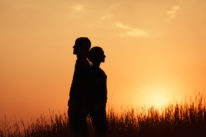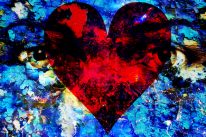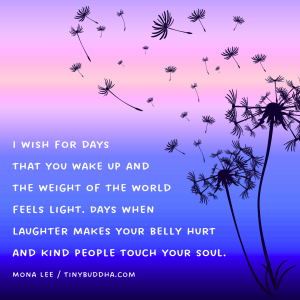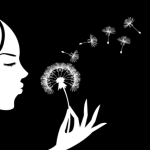
“Sometimes this broken heart gives birth to anxiety and panic, sometimes to anger, resentment, and blame. But under the hardness of that armor there is the tenderness of genuine sadness …This continual ache of the heart is a blessing that when accepted fully can be shared with all.” ~Pema Chodron
I remember a few years ago when I was going through a bad break-up. It wasn’t the longest relationship of my life or even the deepest. But it had so much potential and it ended in the most cursory of ways.
Already a few drinks deep, I FaceTimed a friend who lives in D.C. and we had a long-distance whiskey together. As I teared up I asked him a favor, prefacing it as such: “I’m guessing it’s the case. I know this sounds dramatic. But I need you to tell me that I’ll find ‘the one’ and settle down at some point.”
He looked at me, paused, and said something I’ve never forgotten. He said, “You will love again. That I know. Whether it’s one person for a long relationship or many people with shorter ones, I know you will fall in love again.”
As a long-time Buddhist practitioner, I have studied and experienced the heart’s amazing resilience and ability to rebound and offer love, again and again. Yet my friend’s words hit me in a new way.
I began to realize that the ability to love is innate. We love love. We all want to love, and while there are times when we feel devastated by loss, the heart ultimately heals and once more shines forth, hoping to connect anew.
And maybe that means we love one person for the rest of our days, or many, but the heart’s ability to love is not something I have ever questioned since. That said, when you’re broken-hearted, it’s hard to contact your ability to love unconditionally.
Now, if you’re like me when you go through a major break-up you have a particular set of things you do to distract yourself from that pain.
You might hole up and binge-watch a television show. You might drink a lot, either at home or hole yourself up at a local bar with a handful of supportive friends. You might attempt to rebound quickly, filling your time with endless dates or casual sex.
Whatever your form of distraction may be, you might have found what I found: these distractions are temporary and when your show ends/you sober up/you wake up next to someone you don’t really like your pain is there bigger and badder than ever.
In my experience, big emotions like heartbreak aren’t meant to be avoided; they’re meant to be felt. It’s a bit like standing at the edge of the ocean and having a giant wave come crashing down on you. You can kick and fight and pull against it, but it will only drag you further out to sea.
Instead, you can look at it and dive headfirst coming out the other end, perhaps even feeling refreshed. The same goes for heartbreak. The more you kick and fight against it, the more you will get dragged into the very depths of that misery. The only way is through. You have to let the emotion roll over you like that wave.
The main practice I recommend is one I do for heartbreak moments both big and small. I place my hand on my heart, drop the story line around the underlying emotion, and rest with the feeling of the emotion itself.
Instead of getting lost in the mental maze of “Why did she do that?” “How can I get her back?” or “What did I do wrong?” I acknowledge those thoughts then bring my focus back to the emotion that exists right beneath their surface.
As Pema Chodron says at the beginning of this piece, I let myself go past the anxiety and panic and touch the genuine heart of sadness that exists underneath. From that place of vulnerability and authenticity, I find the energy to once more connect with others from a place of wholeness and love.
Years after that emotional talk with my friend, when I went through a similar break-up, I knew that the best way to see myself through to the other side of my broken heart was to take the time to rest.
I would notice the pain of missing that person and the sinking feeling that occurred in my body. When that would happen I would lie down and breathe into it. I wouldn’t entertain the story lines that came up. Quite the opposite—I would return to the sinking feeling.
And then, as if I had said some magic spell, the sinking feeling would lift and I could go about my day once more. I could connect with others, offering my vulnerable and tender self authentically. By diving into the heart of what I felt, I ended up feeling liberated. Today, I love again. Tomorrow, I hope to do the same.
Broken heart image via Shutterstock
About Lodro Rinzler
Lodro Rinzler is a Shambhala Buddhist teacher and the author of five books on meditation including How to Love Yourself (And Sometimes other People). He has taught at locations as diverse as Google, Harvard, and Capitol Hill and has been featured on WNYC, WBUR, FOX, and the CBC. He is the founder of M N D F L.













 Though I run this site, it is not mine. It's ours. It's not about me. It's about us. Your stories and your wisdom are just as meaningful as mine.
Though I run this site, it is not mine. It's ours. It's not about me. It's about us. Your stories and your wisdom are just as meaningful as mine.